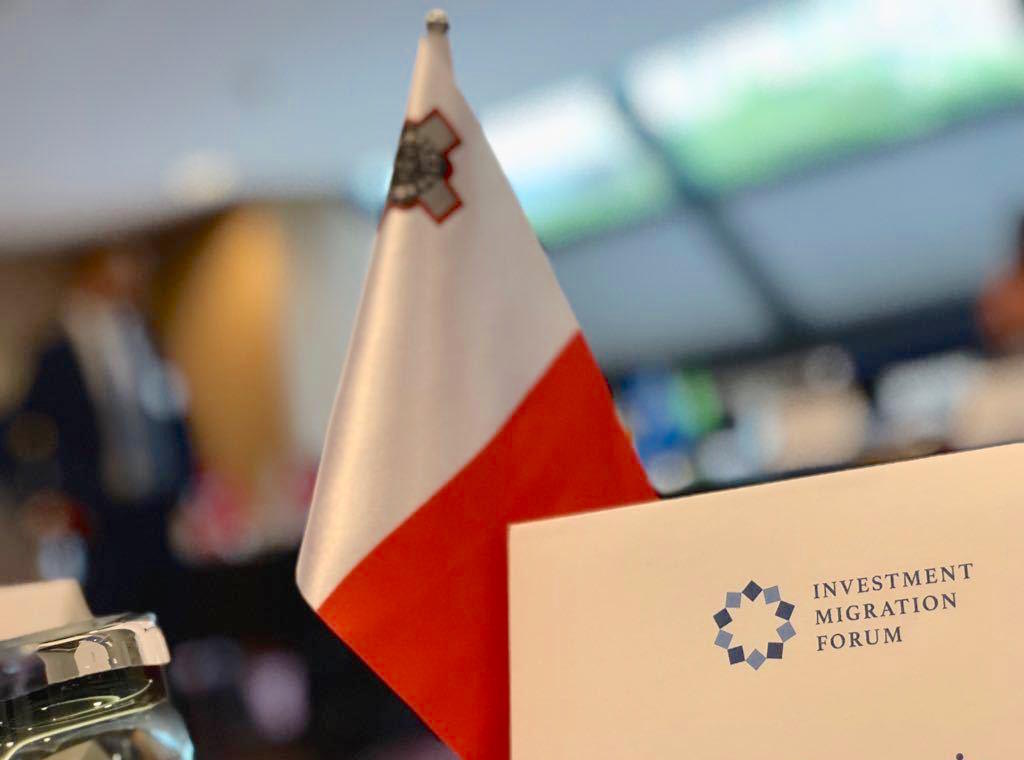The Individual Investor Programme of Malta is designed to attract to Malta’s shores applicants who can share their talent, expertise and business connections. It is the first citizenship programme in the European Union to be recognized by the European Commission. Applicants are subject to a thorough due diligence process which guarantees that only reputable applicants acquire Maltese citizenship. Moreover, applications from countries where international sanctions apply may not be accepted. Applications from a particular country can also be excluded on the basis of a Government policy decision. Malta offers great opportunities to applicants of the IIP and their families, including a high standard of living, a stable political system and a robust economy.
Malta developed the first CBI risk matrix to mitigate all the risks associated with CBI applications which goes beyond the source of funds and wealth. The MIIPA uses a structured due diligence process with a multitude of layers in order to gain access to information about the applicants. Sources include government agencies, law enforcement agencies and the private sector to obtain the necessary information which is then analysed and reviewed to mitigate the risks.
With a leading role in due diligence within citizenship by investment, the Malta IIP is one of the main advocates of the importance of this process. In the wake of greater scrutiny of the industry, CIUs need to seek ways how to enhance their collaboration, by sharing their wealth of knowledge and experience in a formal manner within the required legislative framework. We must exercise stringent DD and we must clearly communicate this to all the stakeholders and observers.
Investment migration
Faced by political and socio-economic instability in their countries, a growing number of wealthy private individuals are looking at investment migration as a way of giving themselves, and their immediate family members, the opportunity to live a better life in a more stable environment. This created an economic niche for CBI programmes. Malta embraced this opportunity, by designing a programme that is intended to expand its horizons and attract people not only willing to invest, but who believe in the country’s potential.
During her speech at the Investment Migration Forum in Geneva, Hon Julia Farrugia Portelli stated that the IIP is widely perceived to be the leading one in the industry. This goes down to our approach. Our modus operandi is different – it is not simply based on a business transaction. It is a holistic approach, taking into consideration different facets in order to safeguard the interest of the applicant, our country and even that of other countries to which the application receives right to entry.
Malta Risk Matrix
Developed by Jonathan Cardona and Yakof Agius, the Individual Investor Programme of the Republic of Malta Risk Matrix was created with adaptability in mind. Using an evidence-based approach, the risk matrix was developed as a framework to facilitate a more structured and aligned risk assessment, which together with predictive capabilities, lends itself well as a tool that enables standardisation of due diligence across the CBI/RBI industry.
The current iteration of the IIP’s risk matrix consists of five levels of risk, across seven categories. Through this risk matrix, the IIP has been able to undertake a more structured risk assessment, which facilitates a more objective and systematic review of applications. This ultimately resulted in case officers being able to conduct a more thorough risk assessment, in less time when compared to the previous process.
In an interview to Imidaily Yakof Agius said “It can easily be adopted by other citizenship by investment units (CIUs) because having more data that feeds into the risk matrix helps it be more accurate, but if a CIU cannot invest the same resources that we invest and their data points are limited to 50% or 25% of what we have then, still, the risk matrix will give an indication based on that 25% of data.”
Jonathan Cardona, CEO of the Individual Investor Programme of the Republic of Malta told Investment Migration Insider that it is imperative for CIP-Countries to implement stringent due diligence practices in order for the industry to remain sustainable.
The Malta Individual Investor Programme Agency (MIIPA)
The Malta Individual Investor Programme Agency (MIIPA) has put together a very rigorous due diligence process to be able to make a sound judgement on the applications put forward by the agents.
Over the past 6 months, the Malta Individual Investor Programme Agency (MIIPA) has had a number of positive discussions about the details of its Due Diligence process, including the IIP Risk Matrix, with entities such as Transparency International, Global Witness, various representatives for the EU commission, the IMF and the OECD amongst others.
There are constant changes in legislation and directives to contend with. From one hand there is a big demand for more clarity on source of wealth and transparency, whilst on the other hand there are calls for more privacy and data protection. CIUs need to look at this with open mind and challenge themselves to put the necessary frameworks in place in order to mitigate risks.
Maintaining the integrity of Malta’s economic citizenship programme is perhaps the greatest challenge that the country faces, said Parliamentary Secretary for Reforms, Citizenship and Simplification of Administrative Processes, Julia Farrugia Portelli.
She further said.. Due diligence is the corner stone of every citizenship-by-investment (CBI) programme. For obvious reasons CBI Units tend to keep confidential information under wraps and do not disclose what actually happens behind the scenes during those months that the applicants are waiting for a decision. We have put a lot of time, effort and resources into developing a robust multi-layered due diligence system which sifts the successful applications from those that do not merit citizenship. We have different levels of checks and balances in place, in order to ensure a solid and transparent process.
S.C.A.R.S
Providing an overview of the issues facing those conducting Customer Due Diligence in the digital world, Mr Colin Tansley emphasised on the fact that conducting proper CDD will protect one’s company and its reputation while contributing in tackling crime, amongst many other reasons. If anything goes wrong, the resulting consequences would ripple effect from the individual to the company, to the jurisdiction, and possibly cripple up to the industry itself. So one has to stay on the alert for the S.C.A.R.S:
- Search: Understand the available information, ask questions, get as much data from the client.
- Credibility: An analytical eye is key to question all the false information the internet is full of.
- Analysis: Who are they, what are they doing, where are they in the world, where do they operate, why do they do it, how do they do what they’re doing, and when.
- Record Keeping: Paper recording is too much time consuming, so an automated electronic recording system should be set up to record every single click one makes when conducting CDD – think regulator!
- Security: When moving around online, one leaves a massive footprint if not careful – stay vigilant!
Big Data
The average individual produces six newspapers’ worth of information every day. The elimination of paper, the ease of content creation and the explosion of mobile capture drives this trend. A U/HNI produces even more than that due to the loads of more media coverage they get. All this makes due diligence much harder because one can’t keep up with this mountain of information available.
Machine learning is the solution to overcome big data challenge on due diligence. Mr Thomas Anthony, CFCS explained in First due diligence conference how the solution to overcoming this challenge is Artificial Intelligence.
Blockchain
Blockchain has been attracting much attention during this past year and has drawn significant focus and investment from both individual investors and financial institutions in the industry. Given it’s potential to disrupt and improve both processes and systems, many companies are dedicating resources to understand how to integrate blockchain into their businesses.
Mr. Jonathan Cardona said, Malta soon to implement Blockchain for KYC.
MIIPA and Banks
Every citizenship by investment application is thoroughly scrutinised by MIIPA before it receives approval, and then it is subject to further review from local banks in order for the applicant to be able to conduct banking services in Malta.
Ms Maruska Buttigieg Gili from BNF Bank plc and Ms Marisa Frendo from Bank of Valletta plc during the First due diligence conference that there are no links whatsoever between MIIPA and financial services institutions. Being granted Maltese citizenship and the right to open a bank account are not interlinked. MIIPA and local banks conduct their own assessment of the applications received, and in some cases, decisions differ.
Source/Credit: Government of Malta





